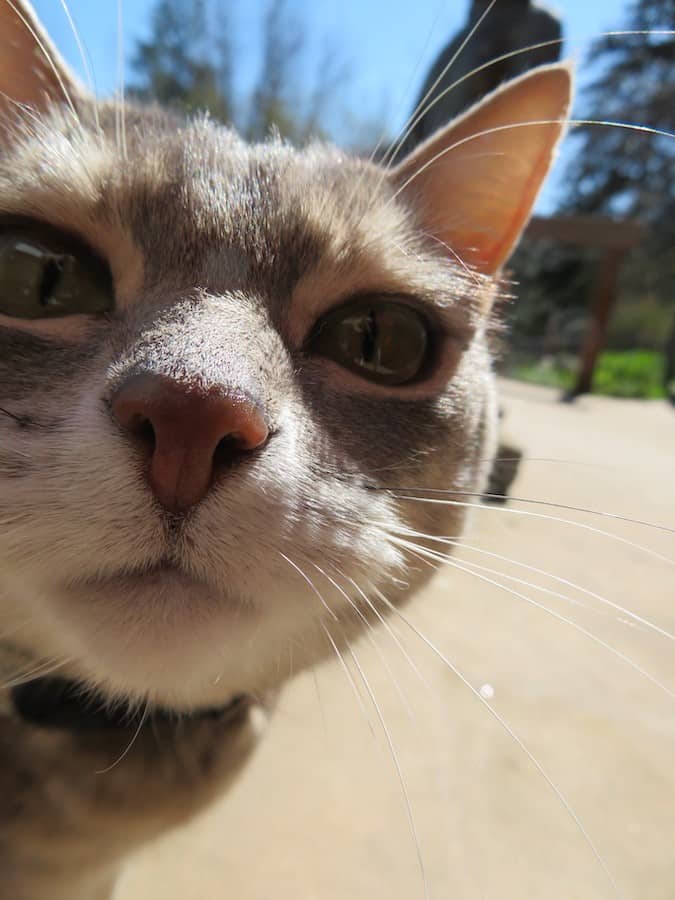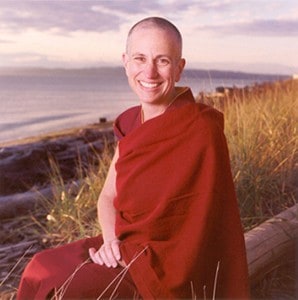Verse 93: Elders with wisdom
Verse 93: Elders with wisdom
Part of a series of talks on Gems of Wisdom, a poem by the Seventh Dalai Lama.
- How and why elders are honored in some cultures
- Wisdom that knows the two truths
- How things exist dependently
- Developing mental flexibility, openness, and tolerance
Gems of Wisdom: Verse 93 (download)
Who are honored as elders by every being that lives?
Those with the light of wisdom able to distinguish the essence of being.
Who are honored as elders by every being that lives? Usually in traditional cultures elders are honored because they’ve accumulated experience, and by accumulating experience have matured and gained wisdom. Our culture, unfortunately, doesn’t see elders that way. I think we lose out a lot because of that.
Who are the elders that are honored? It says, “those with the light of wisdom able to distinguish the essence of being.”
“The light of wisdom” we understand, wisdom that can see things as they are.
“The essence of being.” Here he translated a term—I’m not sure exactly what the term is because he didn’t write what it was—but it’s referring (I think) to the way things are, both conventionally and ultimately. So it’s referring to the two truths. The being who is revered as an elder is someone with the light of wisdom that knows the two truths. If you’re old but you don’t know the two truths, sorry. [laughter] And if you’re young and you do know the two truths, that’s good. But the idea is that we ordinary beings are very deceived. There are things that appear to us to exist conventionally as objective entities out there and we just take that appearance as true and grasp onto things as existing that way. And then we think the attractive qualities exist in the object. Or the unattractive qualities exist in the object. And then we’re constantly battling with the external world that we either like or we don’t like.
If we understand the two truths we understand that these conventional things that appear to us as truly existent—they appear falsely. In other words, although they appear to have their own essence in and of themselves as objective entities, they don’t actually have such an essence. When we start to look for what that essence could possibly be, we can’t come up with anything. So that non-finding of an ultimate essence, when searched for—the non-finding of any objective entity (when we search for it like that) that is the ultimate nature of—that is its emptiness of inherent existence.
When we see that things, at the root, don’t have any objective existence, that they all exist in relation to other factors, such as their causes and conditions, their parts, or the things they’re posited in relationship to (like long and short, big and small), that they’re dependent on names and conceptual minds that designate those names…. When we see this dependent nature then we can see that while things don’t have an independent nature they still have a dependent one, but that dependent one is not truly existent like it appears to be.
Somebody who understands the two truths like this takes things as existing on the level of appearances only, takes things as nominally existing, and therefore they don’t take everything so seriously. Things aren’t so weighty, they aren’t so concrete, so there’s much more an attitude of being able to play with them instead of “oh my god look what’s happening!” So it adds some playfulness, some relaxation, and it also helps us to become clearer about what our priorities are.
That clarity in terms of our priorities also helps us live a more meaningful life and not get caught up in stupidaggios thinking that the things that appear to us as existing so concretely are really so incredibly important and crucial. And so that gives us more space to really think about other living beings, and working for the benefit of other living beings—even though these beings don’t inherently exist, they still do exist dependently. Their dependent existence means that their suffering and misery is dependent on other factors, these factors can be eliminated so that gives us an attitude of hope and optimism. And so then we can have compassion for living beings and we can work to eliminate their suffering and work to eliminate our own because we see also that our misery is not something concrete, and that we, too, are not concrete living beings. That we exist only nominally, only as appearances.
This is a big shift from the way we’re usually looking at ourselves and others, but the more we’re able to train ourselves in this way then the more mental flexibility and openness and tolerance we have with what we see around us. And that makes us an elder with wisdom. Not our gray hair. [laughter]
Venerable Thubten Chodron
Venerable Chodron emphasizes the practical application of Buddha’s teachings in our daily lives and is especially skilled at explaining them in ways easily understood and practiced by Westerners. She is well known for her warm, humorous, and lucid teachings. She was ordained as a Buddhist nun in 1977 by Kyabje Ling Rinpoche in Dharamsala, India, and in 1986 she received bhikshuni (full) ordination in Taiwan. Read her full bio.


